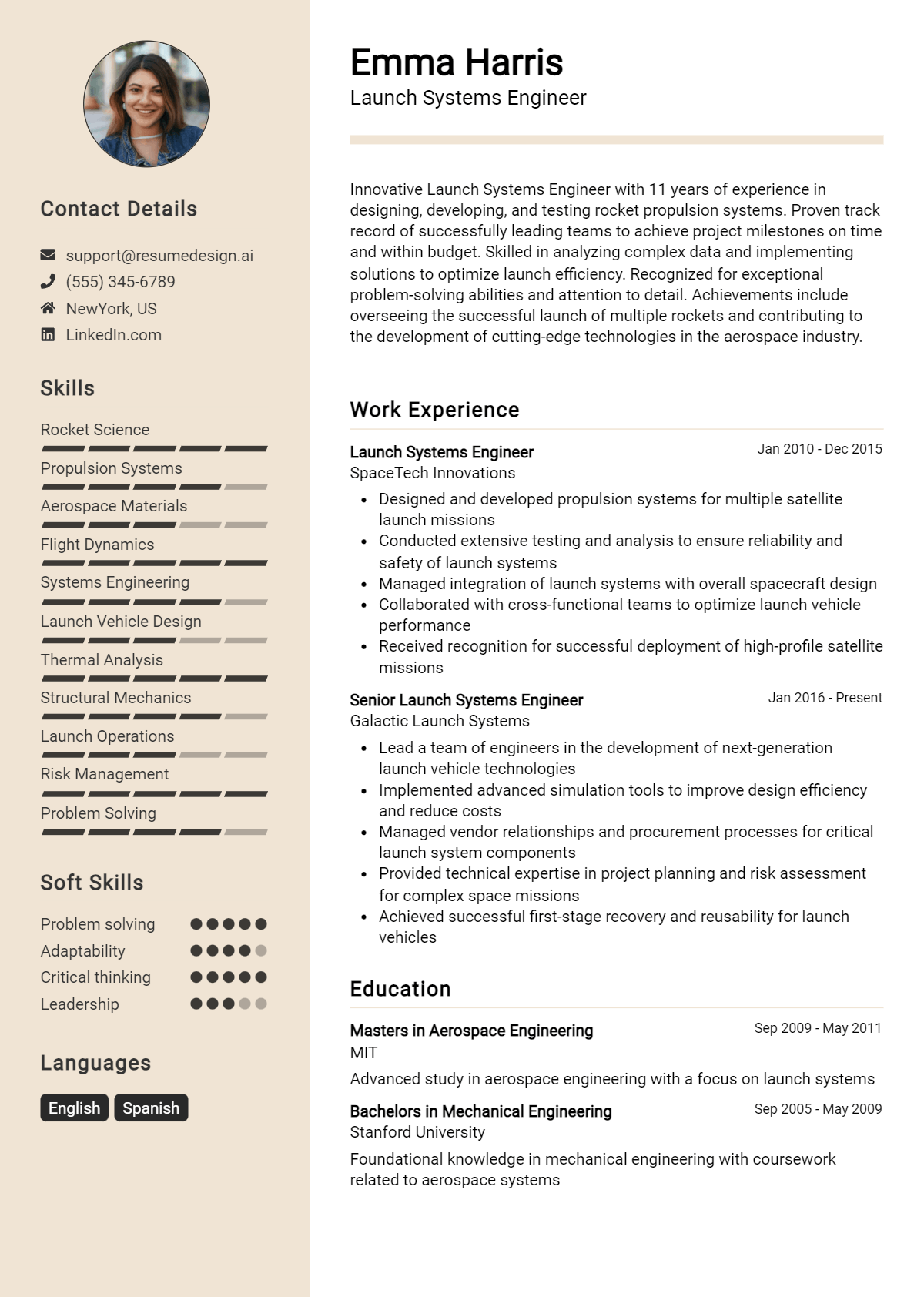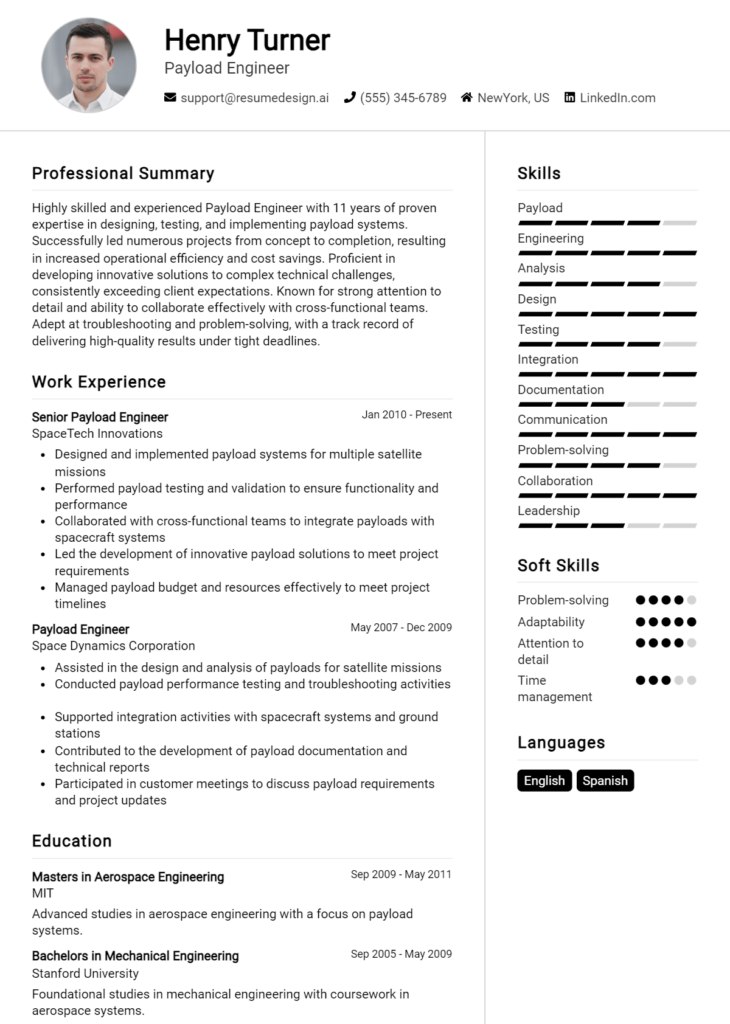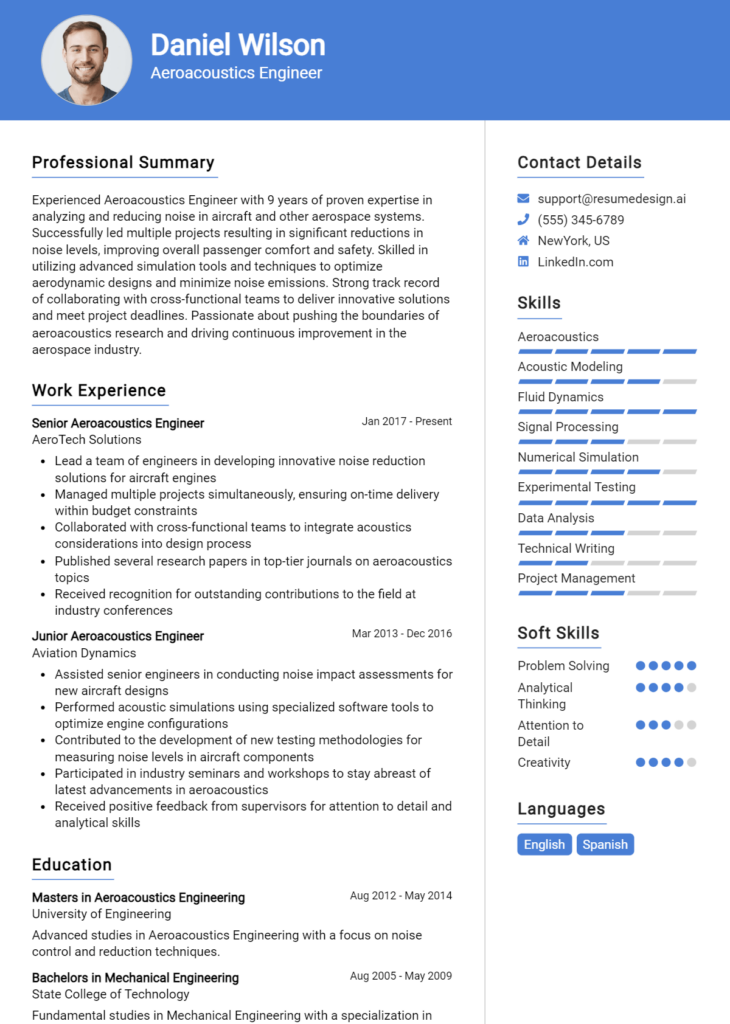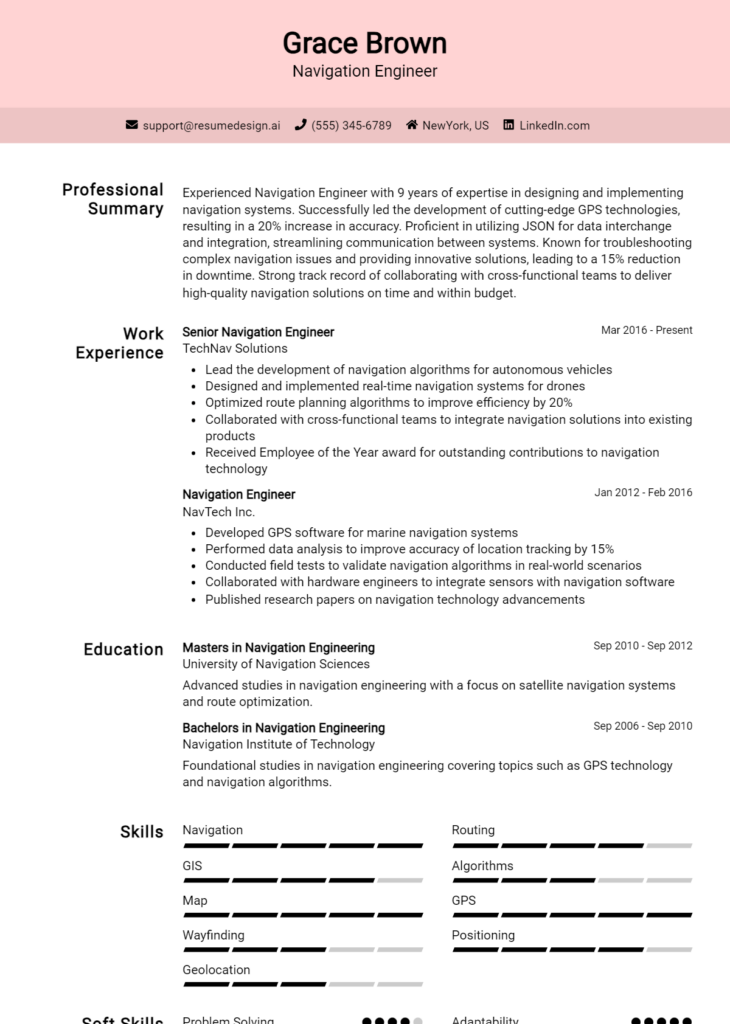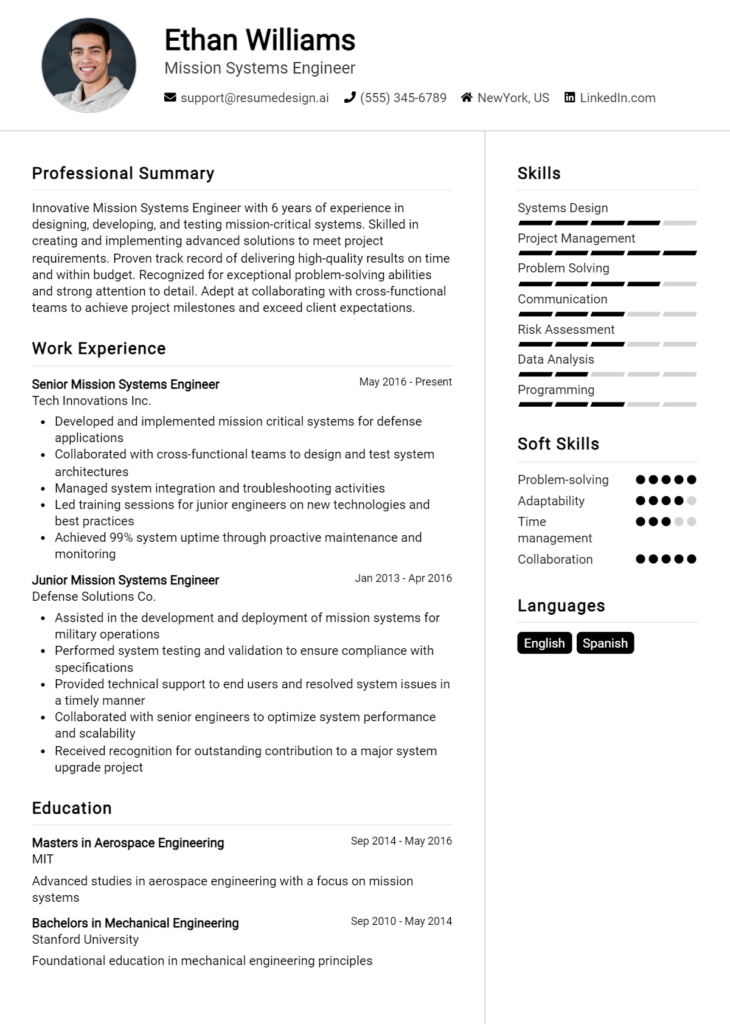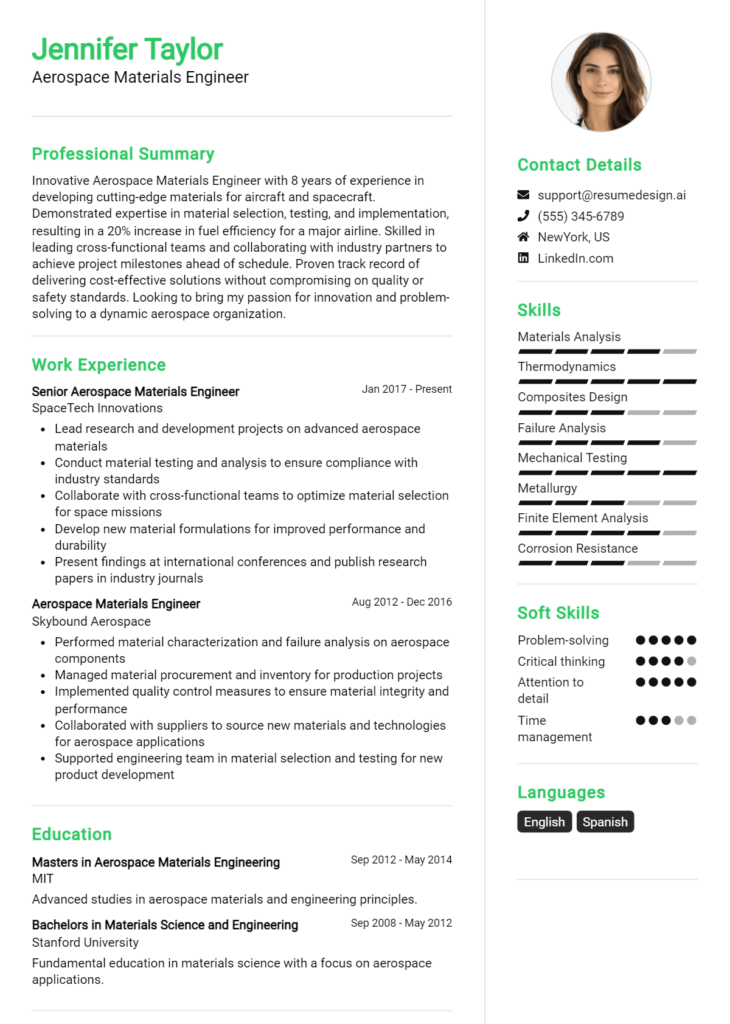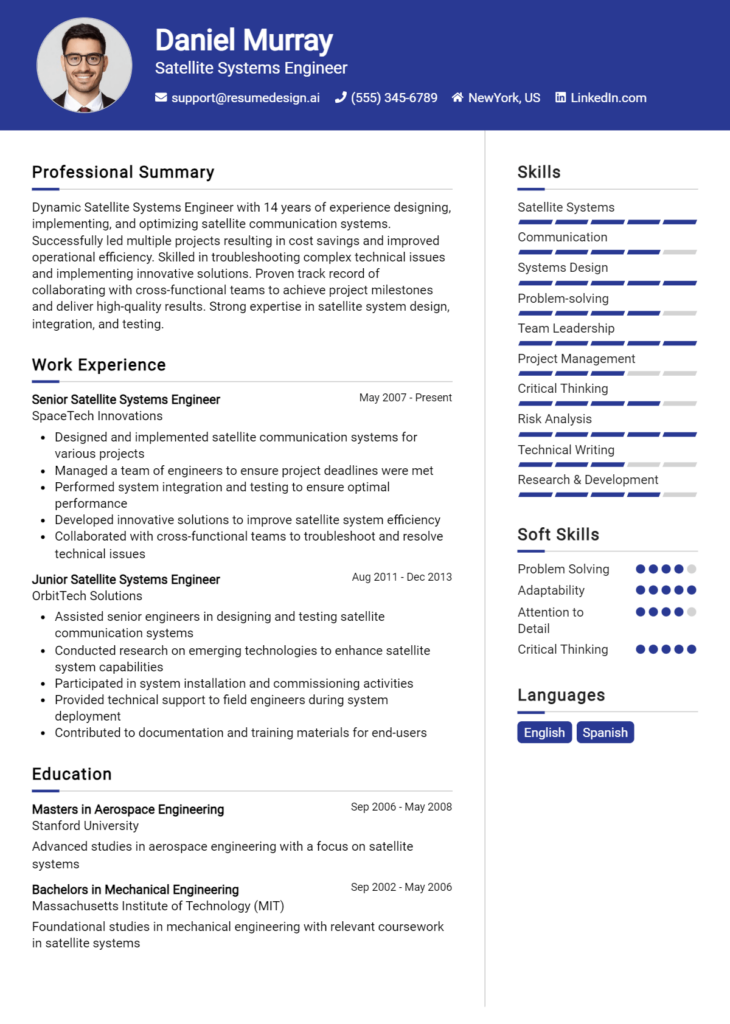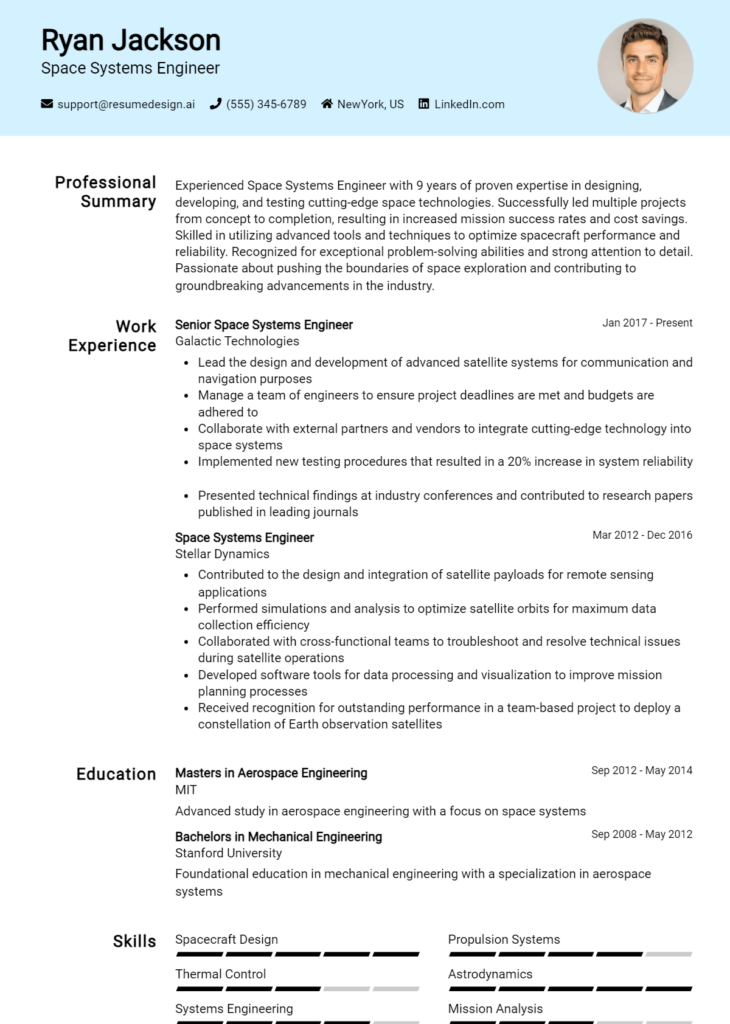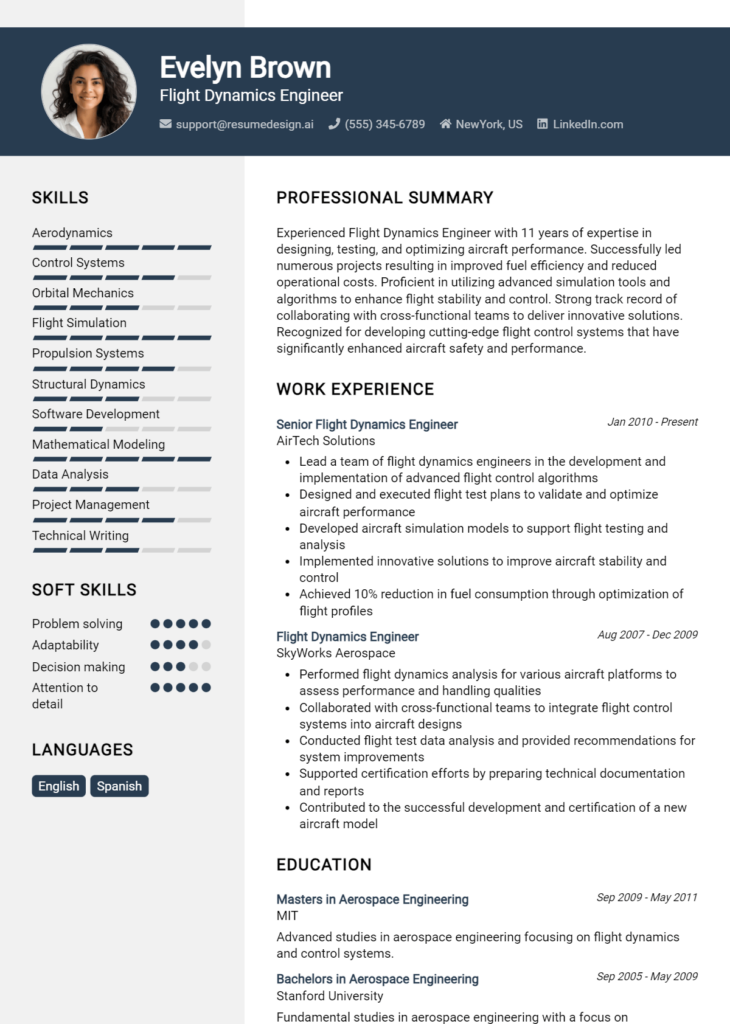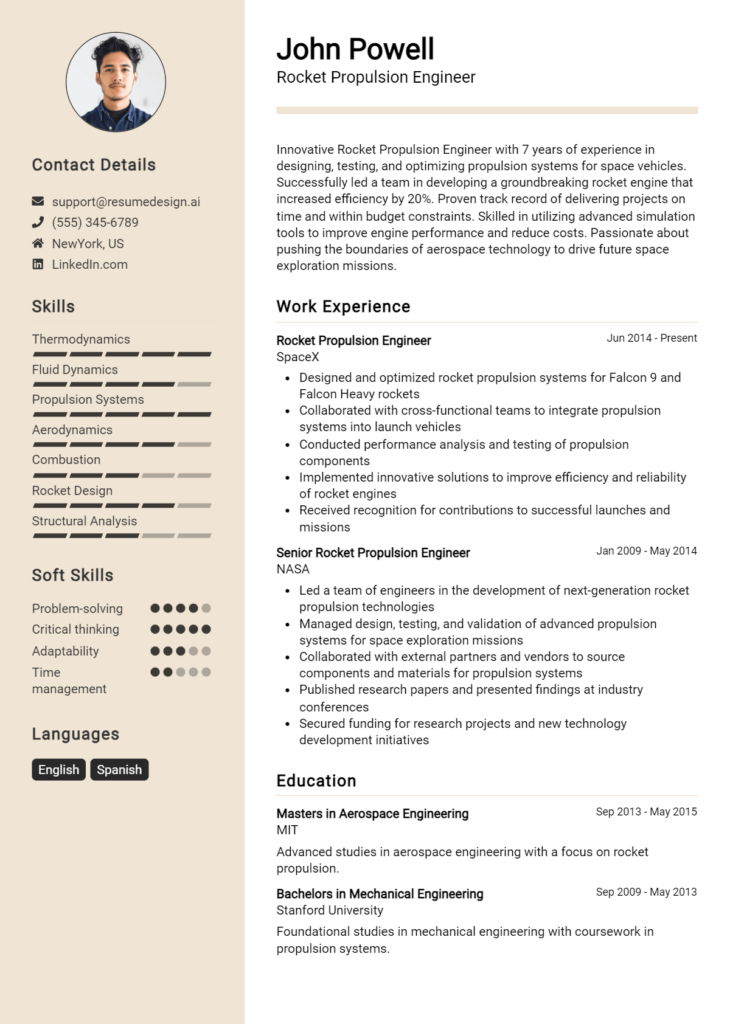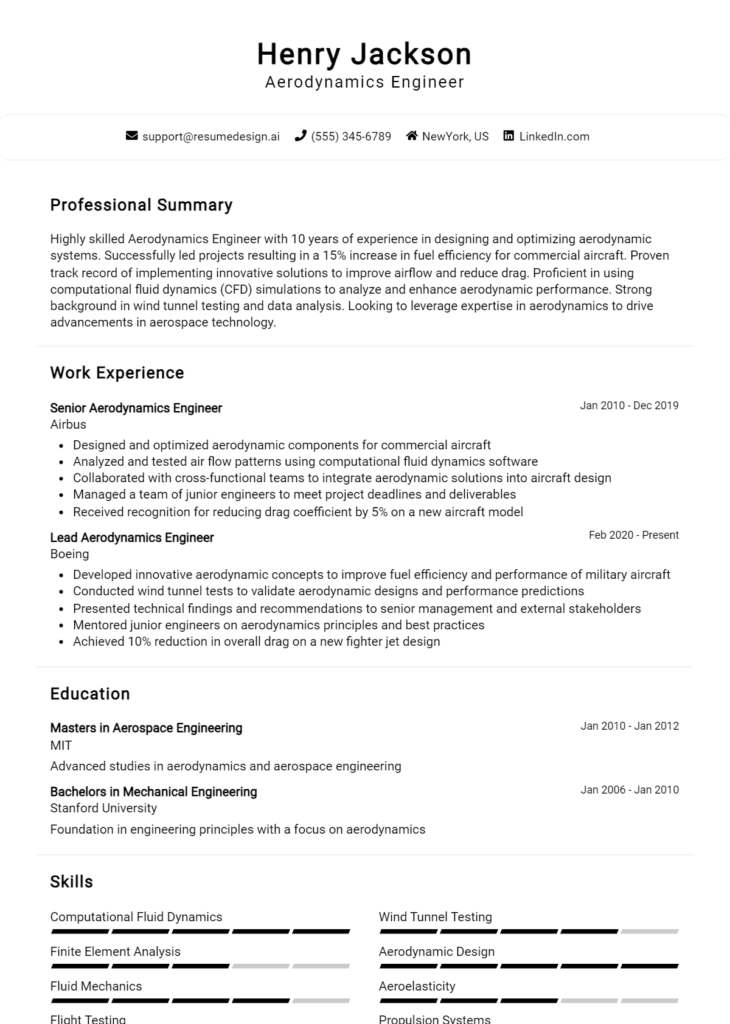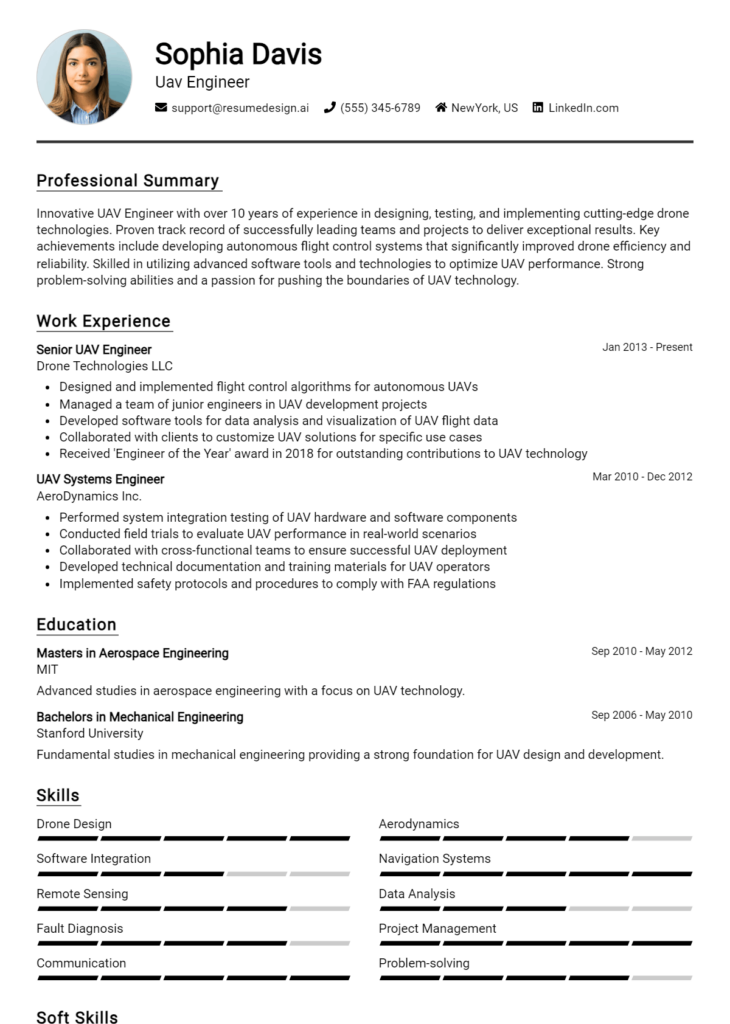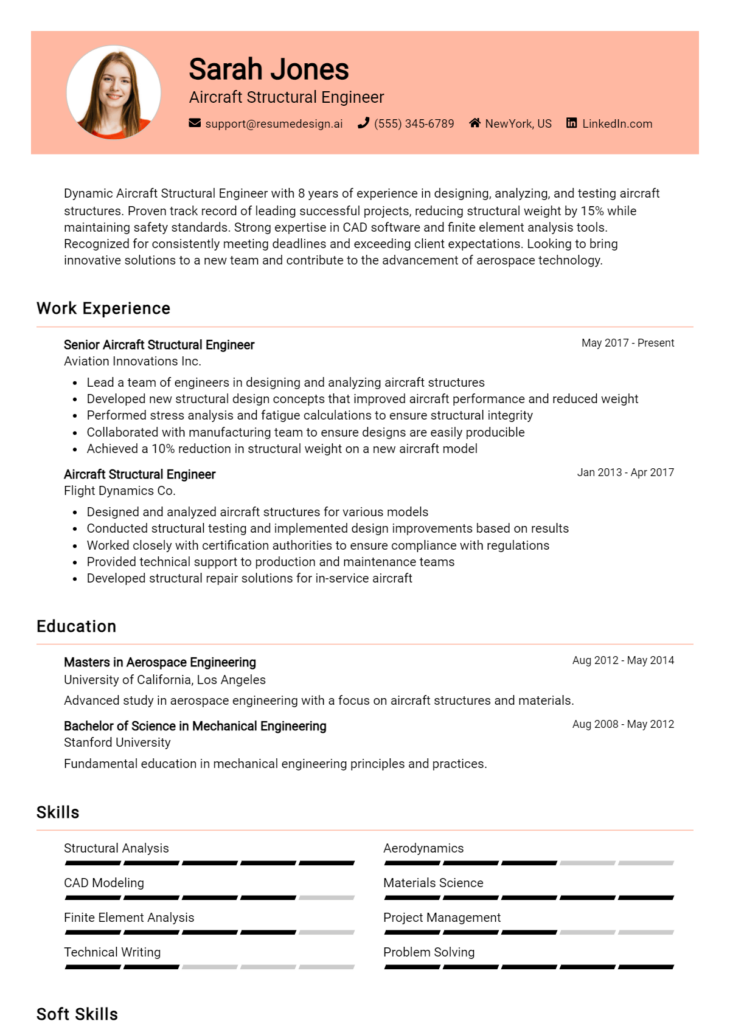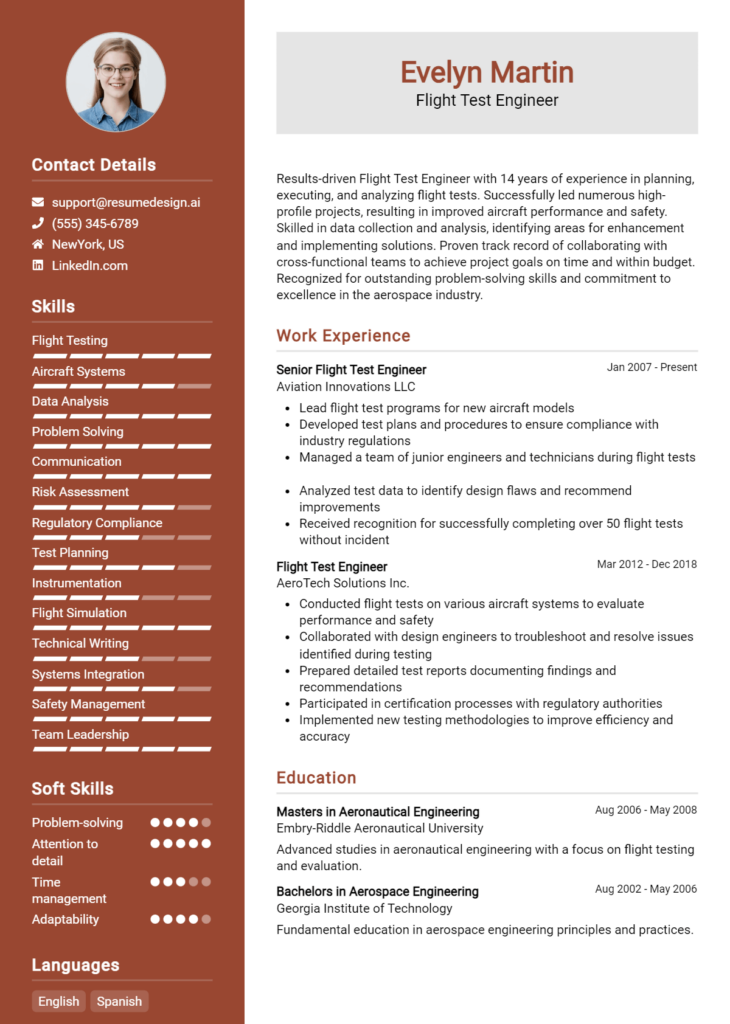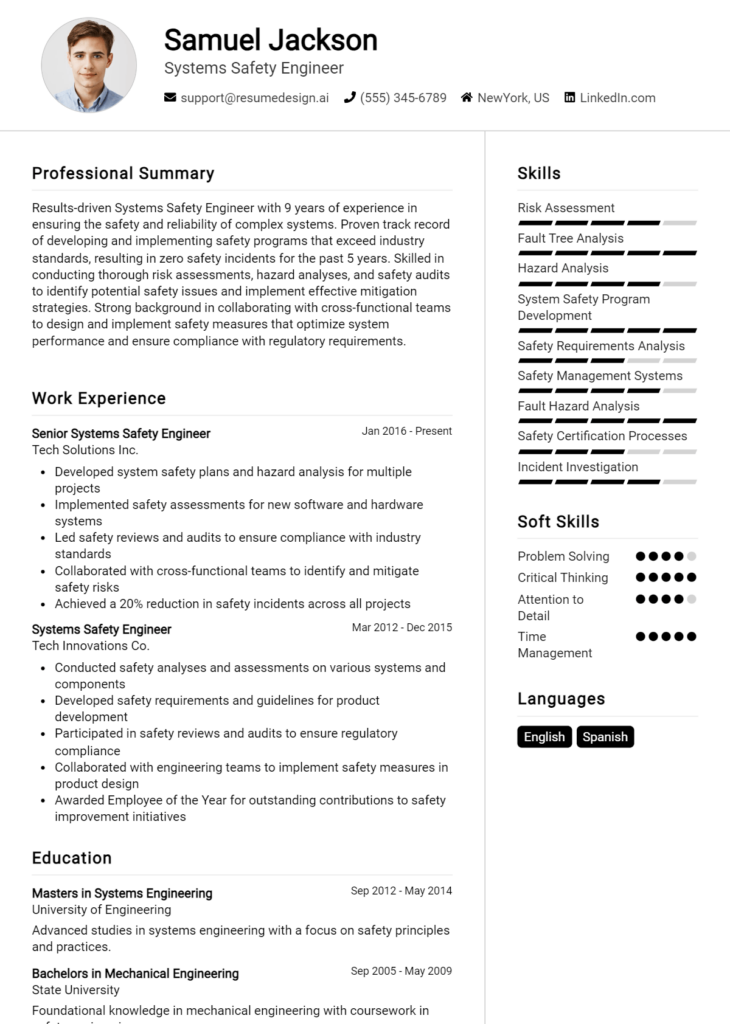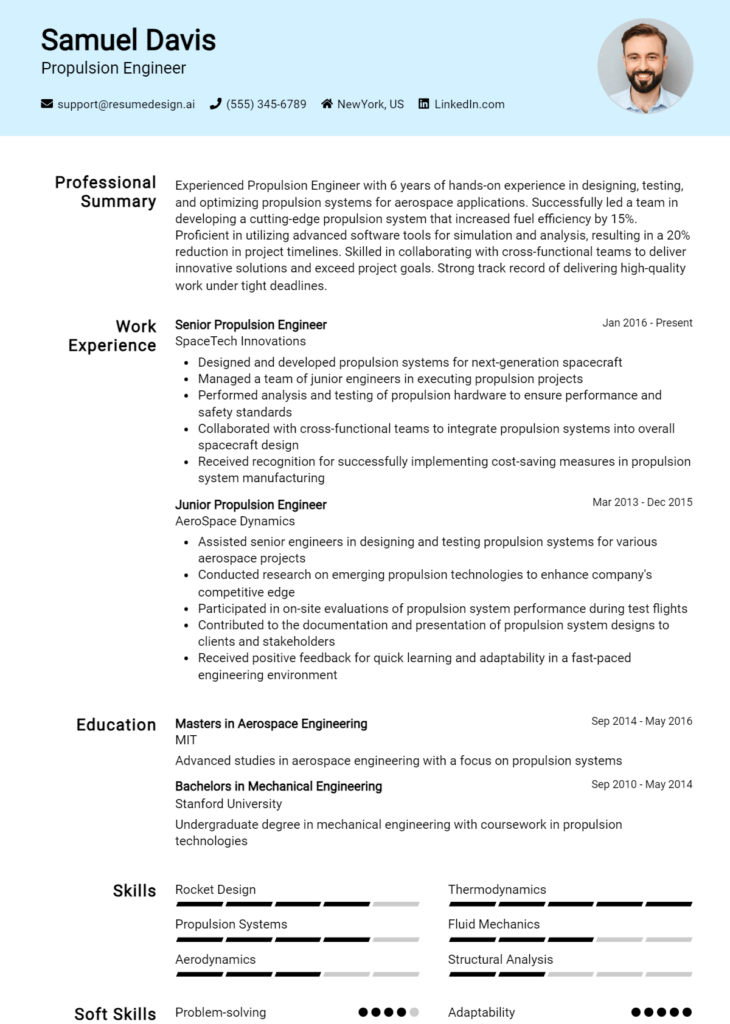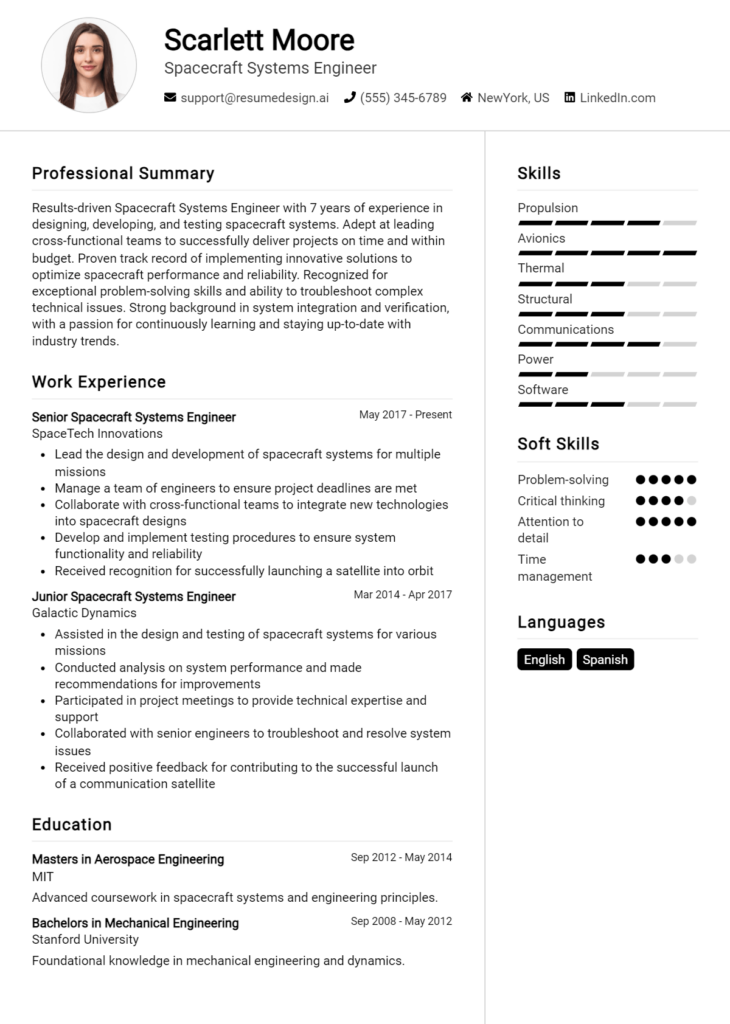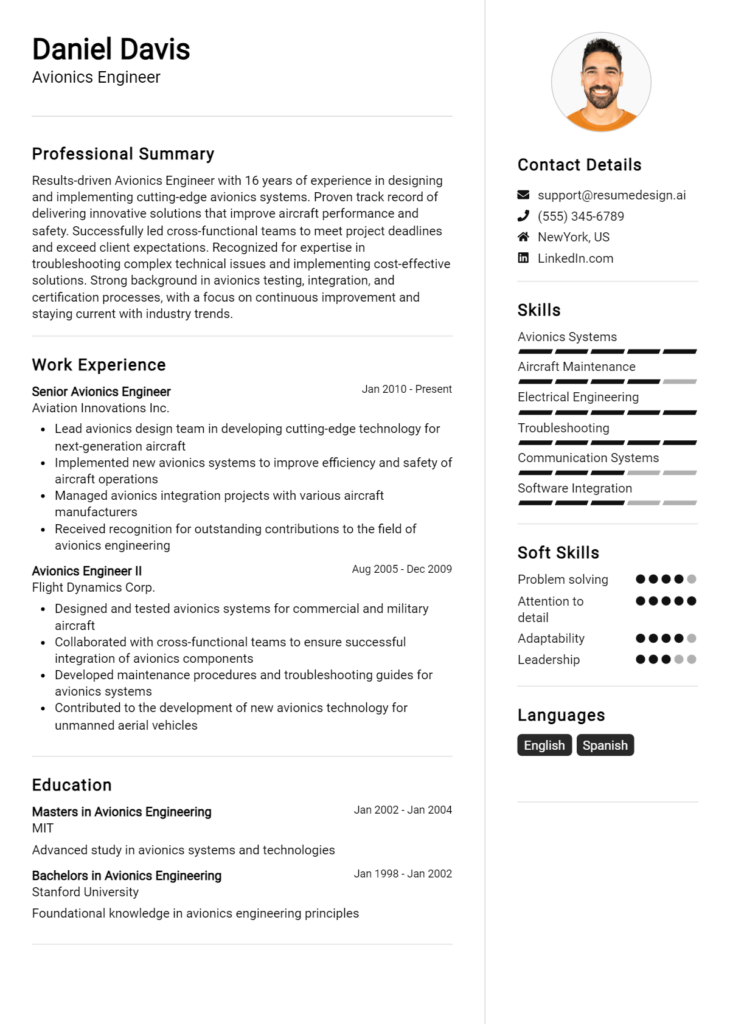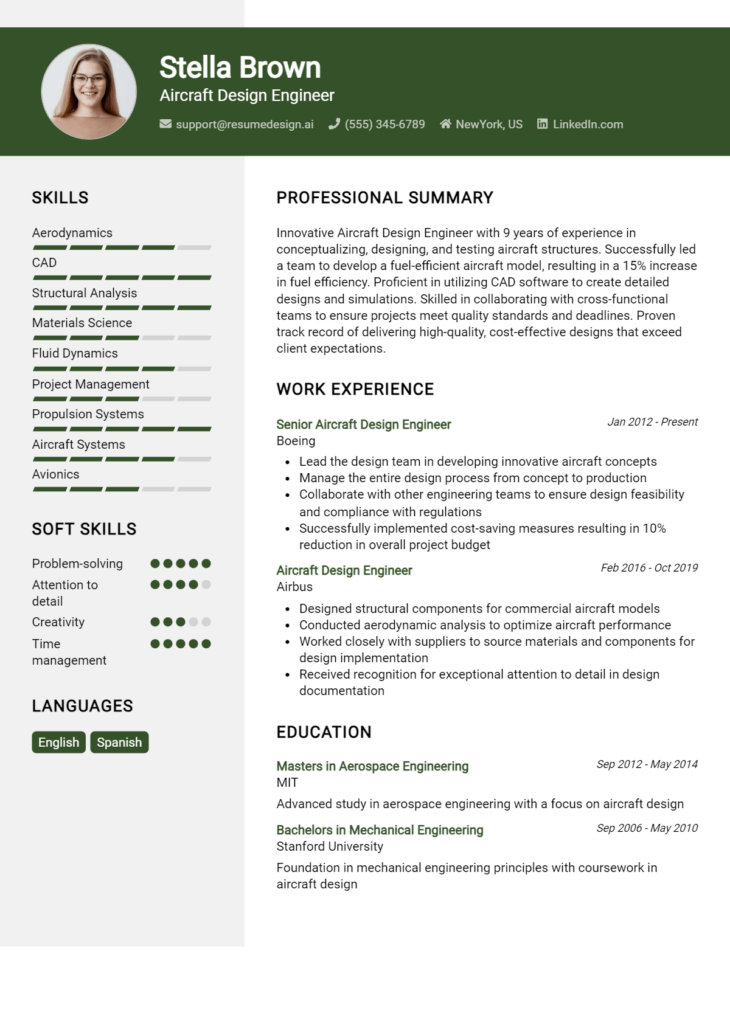Launch Systems Engineer Core Responsibilities
A Launch Systems Engineer plays a critical role in the coordination and execution of launch operations, bridging gaps between engineering, project management, and operational teams. They are responsible for developing and maintaining launch procedures, analyzing system performance, and troubleshooting any technical issues. Success in this role requires exceptional technical knowledge, strong analytical skills, and the ability to solve complex problems under pressure. Highlighting these skills on a well-structured resume enhances visibility to potential employers and showcases the candidate's contribution towards achieving organizational objectives.
Common Responsibilities Listed on Launch Systems Engineer Resume
- Develop and implement launch procedures and protocols.
- Collaborate with cross-functional teams to ensure system integration.
- Conduct performance analysis and risk assessments for launch systems.
- Troubleshoot technical issues during pre-launch and launch phases.
- Support the development of test plans and execution strategies.
- Maintain documentation and manage change control processes.
- Monitor system performance and provide real-time support during launches.
- Coordinate with stakeholders to ensure alignment on launch objectives.
- Provide training and support to operational teams on launch systems.
- Participate in post-launch reviews and continuous improvement initiatives.
- Utilize simulation tools to predict and analyze launch scenarios.
High-Level Resume Tips for Launch Systems Engineer Professionals
In the competitive field of aerospace and defense, a well-crafted resume is not just a document; it’s your first handshake with a potential employer. For Launch Systems Engineer professionals, your resume serves as a powerful tool to showcase your technical prowess, problem-solving abilities, and impressive track record of successful projects. It must clearly reflect not only your skills and experiences but also your achievements in a way that resonates with hiring managers looking for the perfect fit for their teams. This guide will provide practical and actionable resume tips specifically tailored for Launch Systems Engineer professionals, enabling you to make a memorable first impression.
Top Resume Tips for Launch Systems Engineer Professionals
- Tailor your resume to each job description, using relevant keywords to align your experience with the employer's needs.
- Highlight your engineering projects, detailing your specific contributions and the technologies used.
- Quantify your achievements by including metrics, such as reduced launch times or improved system efficiencies.
- Showcase your proficiency with industry-specific software and tools, such as CAD, simulation software, or project management systems.
- Include a dedicated section for certifications and licenses relevant to aerospace engineering, such as PMP or Six Sigma.
- Demonstrate your teamwork and leadership skills by including examples of cross-functional collaboration and project management.
- Utilize action verbs to convey your responsibilities and accomplishments powerfully, such as “developed,” “designed,” or “implemented.”
- Keep your resume concise and focused; aim for a one-page format unless you have extensive experience.
- Proofread for errors and ensure clarity, as attention to detail is paramount in engineering roles.
By implementing these tips, you can significantly enhance your resume's effectiveness, thereby increasing your chances of landing a job in the Launch Systems Engineer field. A targeted, achievement-oriented resume will not only highlight your qualifications but also position you as a strong candidate who stands out in a pool of applicants.
Why Resume Headlines & Titles are Important for Launch Systems Engineer
In the competitive field of aerospace engineering, particularly for the role of a Launch Systems Engineer, a well-crafted resume headline or title serves as a critical tool for candidates to stand out. A strong headline can immediately capture the attention of hiring managers by succinctly summarizing a candidate’s key qualifications and relevant experience in one impactful phrase. This brief yet powerful introduction should be concise, relevant, and tailored specifically to the job being applied for, setting the tone for the rest of the resume and highlighting the candidate’s fit for the role.
Best Practices for Crafting Resume Headlines for Launch Systems Engineer
- Keep it concise: Aim for a short phrase that sums up your qualifications in a few words.
- Be specific: Use keywords that relate directly to the Launch Systems Engineer role.
- Highlight key strengths: Focus on your most relevant skills, experiences, or accomplishments.
- Use action-oriented language: Start with strong action verbs to convey confidence and proactivity.
- Tailor for each application: Customize your headline for each job you apply to, reflecting the specific requirements of the position.
- Include relevant certifications or specializations: Mention any unique qualifications that set you apart.
- Avoid jargon: While technical terms can be useful, ensure your headline is understandable to a broader audience.
- Make it visually distinct: Use formatting, like bold or capitalization, to help your headline stand out on the page.
Example Resume Headlines for Launch Systems Engineer
Strong Resume Headlines
Dynamic Launch Systems Engineer with 5+ Years of Experience in Rocket Propulsion and Systems Integration
Innovative Aerospace Engineer Specializing in Launch Vehicle Design and Mission Optimization
Results-Driven Launch Systems Engineer with Proven Track Record in Successful Launch Operations
Weak Resume Headlines
Engineer Looking for a Job
Experienced Professional in Engineering
The strong headlines are effective because they provide clear and specific information about the candidate's qualifications, making it easy for hiring managers to see their relevance to the position. They utilize impactful language and highlight significant experiences that align with the needs of the job. In contrast, the weak headlines fail to impress due to their vagueness and lack of specificity. They do not communicate a clear value proposition, leaving hiring managers uncertain about the candidate's capabilities or fit for the role.
Writing an Exceptional Launch Systems Engineer Resume Summary
A well-crafted resume summary is crucial for a Launch Systems Engineer, as it serves as the first impression for hiring managers. This brief section succinctly highlights a candidate's key skills, relevant experience, and notable accomplishments, making it an essential tool for standing out in a competitive job market. A strong summary quickly captures attention, offering a snapshot of qualifications that aligns with the specific needs of the job. It should be concise, impactful, and tailored to the particular position, ensuring that hiring managers can easily recognize the candidate's fit for the role.
Best Practices for Writing a Launch Systems Engineer Resume Summary
- Quantify achievements: Use specific numbers or metrics to demonstrate results.
- Focus on relevant skills: Highlight technical and soft skills that are pertinent to the role.
- Tailor for the job description: Customize the summary to reflect the specific requirements and keywords from the job posting.
- Be concise: Keep the summary brief, ideally between 2-4 sentences, to maintain the reader's attention.
- Use action verbs: Begin sentences with strong action verbs to convey confidence and proactivity.
- Showcase unique qualifications: Emphasize any certifications, special training, or unique experiences that set you apart.
- Maintain a professional tone: Use formal language that reflects professionalism and expertise in the field.
- Avoid jargon and clichés: Ensure clarity by using straightforward language, avoiding overused phrases that may dilute impact.
Example Launch Systems Engineer Resume Summaries
Strong Resume Summaries
Detail-oriented Launch Systems Engineer with over 5 years of experience in propulsion systems, successfully leading 10+ launch projects that achieved a 95% on-time delivery rate. Proficient in systems integration and risk management, with a proven track record in enhancing launch reliability through innovative engineering solutions.
Results-driven Launch Systems Engineer with expertise in avionics systems and a passion for space exploration. Spearheaded the development of a new telemetry system that increased data accuracy by 30%, contributing to successful mission outcomes for NASA's recent satellite launches.
Dynamic Launch Systems Engineer skilled in project management and systems analysis. Led a cross-functional team in the successful launch of a groundbreaking satellite, reducing project timeline by 15% while staying within budget, showcasing exceptional leadership and strategic planning abilities.
Weak Resume Summaries
Experienced engineer looking for a position in launch systems. I have worked on various projects and have a good understanding of engineering principles.
Motivated individual with a background in engineering. I hope to contribute to a team and help with launch projects in a dynamic environment.
The strong resume summaries effectively demonstrate quantifiable results, specific skills, and direct relevance to the role of a Launch Systems Engineer, making them compelling to hiring managers. In contrast, the weak summaries are vague, lacking concrete achievements or tailored details that would illustrate the candidate's value, making them less engaging and impactful.
Work Experience Section for Launch Systems Engineer Resume
The work experience section of a Launch Systems Engineer resume is critical as it serves as a showcase for the candidate's technical skills, leadership abilities, and their track record of delivering high-quality products. This section not only highlights relevant job roles and responsibilities but also emphasizes the impact the candidate has made in previous positions. Quantifying achievements with specific metrics and aligning experiences with industry standards are essential in demonstrating the candidate's capabilities and enhancing their appeal to potential employers.
Best Practices for Launch Systems Engineer Work Experience
- Highlight relevant technical skills that are specific to launch systems engineering, such as software proficiency and systems integration.
- Quantify achievements with metrics, such as reduced launch costs by X% or improved system reliability by Y%.
- Demonstrate leadership by showcasing experiences where you managed teams, coordinated projects, or mentored junior engineers.
- Align your experience with industry standards and terminology to resonate with hiring managers and applicant tracking systems.
- Use action verbs to convey impact and ownership over projects and responsibilities.
- Focus on collaboration by detailing experiences working with cross-functional teams, stakeholders, or external partners.
- Include relevant certifications or training that enhance your qualifications in the field.
- Tailor descriptions to reflect the specific requirements of the job you are applying for, emphasizing the most relevant experiences.
Example Work Experiences for Launch Systems Engineer
Strong Experiences
- Led a cross-functional team of 10 engineers to successfully launch a payload, achieving a 15% reduction in operational costs through innovative design solutions.
- Managed the integration of advanced propulsion systems, resulting in a 25% increase in overall vehicle efficiency and a 30% decrease in launch delays.
- Developed and implemented a rigorous testing protocol that improved system reliability by 40%, significantly enhancing mission success rates.
- Collaborated with international partners on a major launch project, which culminated in a successful launch ahead of schedule and under budget, praised by stakeholders.
Weak Experiences
- Worked on various projects in the engineering department.
- Assisted in the launch process and contributed to team efforts.
- Participated in meetings and discussions about engineering strategies.
- Helped with documentation and other tasks as needed.
The examples of strong experiences demonstrate clear, quantifiable outcomes and specific responsibilities that reflect the candidate's technical expertise and leadership qualities. In contrast, the weak experiences lack detail and measurable achievements, making them less impactful and failing to convey the candidate's true capabilities or contributions to previous roles.
Education and Certifications Section for Launch Systems Engineer Resume
The education and certifications section of a Launch Systems Engineer resume is crucial for establishing the candidate's qualifications and expertise in the field. This section not only showcases the academic background relevant to aerospace engineering and systems design but also emphasizes the importance of industry-recognized certifications and continuous learning efforts. By detailing pertinent coursework, certifications, and specialized training, candidates can significantly enhance their credibility, demonstrating their commitment to professional development and alignment with the specific requirements of the job role.
Best Practices for Launch Systems Engineer Education and Certifications
- Prioritize degrees in aerospace engineering, mechanical engineering, or related fields.
- Include industry-recognized certifications relevant to launch systems, such as Certified Systems Engineering Professional (CSEP).
- Detail relevant coursework that applies directly to launch systems, including propulsion systems, avionics, and systems integration.
- Keep the section concise but informative, ensuring all entries are up to date.
- Highlight any specialized training or workshops attended that relate to space launch systems.
- Use clear formatting to make the section easy to read and navigate.
- Consider including GPA if it is impressive and relevant to the role.
- Group related certifications to show a comprehensive understanding of the field.
Example Education and Certifications for Launch Systems Engineer
Strong Examples
- B.S. in Aerospace Engineering, University of California, Los Angeles (UCLA) - Graduated with honors
- Certified Systems Engineering Professional (CSEP), International Council on Systems Engineering (INCOSE)
- Relevant Coursework: Astrodynamics, Launch Vehicle Design, Systems Engineering Fundamentals
- NASA Systems Engineering Training Program - Completed advanced training in launch systems integration
Weak Examples
- B.A. in English Literature, University of Texas - Irrelevant to engineering roles
- Certification in Project Management (PMP) - Not specific to systems engineering
- Completed a workshop on creative writing - Does not relate to technical skills
- High School Diploma - Basic qualification without relevance to engineering
The examples provided illustrate the distinction between strong and weak entries in the education and certifications section. Strong examples showcase degrees and certifications directly relevant to launch systems engineering, demonstrating both depth of knowledge and applicable skills. In contrast, weak examples highlight qualifications that do not relate to the technical requirements of the role, thereby detracting from the candidate's suitability and effectiveness in the field. By focusing on relevant educational achievements and industry-recognized credentials, candidates can significantly boost their attractiveness to potential employers.
Top Skills & Keywords for Launch Systems Engineer Resume
As a Launch Systems Engineer, the importance of showcasing relevant skills on your resume cannot be overstated. Potential employers are looking for candidates who possess both the technical expertise and interpersonal abilities necessary to navigate the complexities of launch systems. A well-crafted resume that highlights your skills will not only demonstrate your qualifications but also set you apart from the competition. By aligning your skills with the specific requirements of the role, you can effectively illustrate your value to prospective employers and increase your chances of landing that critical interview.
Top Hard & Soft Skills for Launch Systems Engineer
Soft Skills
- Communication Skills
- Team Collaboration
- Problem-Solving
- Critical Thinking
- Attention to Detail
- Adaptability
- Project Management
- Time Management
- Leadership
- Analytical Thinking
- Creativity
- Conflict Resolution
- Interpersonal Skills
- Decision-Making
- Customer Focus
- Negotiation Skills
Hard Skills
- Systems Engineering Principles
- Software Proficiency (e.g., MATLAB, Simulink)
- Hardware Integration
- Data Analysis
- Simulation and Modeling
- Control Systems Design
- Knowledge of Launch Vehicles
- Testing and Evaluation
- Risk Management
- Aerospace Standards and Regulations
- Project Lifecycle Management
- Configuration Management
- Technical Documentation
- System Architecture Design
- Automation Tools
- Signal Processing
- Embedded Systems Development
By focusing on these key skills, you can create a compelling resume that effectively communicates your qualifications. Additionally, integrating relevant work experience will further enhance your profile, showcasing your ability to apply these skills in a practical setting.
Stand Out with a Winning Launch Systems Engineer Cover Letter
Dear Hiring Manager,
I am writing to express my interest in the Launch Systems Engineer position at [Company Name] as advertised. With a solid background in aerospace engineering and a passion for cutting-edge launch systems, I am excited about the opportunity to contribute to your team. My experience in developing and managing complex launch systems aligns well with the requirements of this role, and I am eager to bring my technical expertise and problem-solving skills to [Company Name].
In my previous role at [Previous Company], I played a key part in the successful execution of multiple launch missions, where I was responsible for system integration, testing, and troubleshooting. My hands-on experience with propulsion systems, avionics, and ground support equipment has equipped me with a comprehensive understanding of the intricacies involved in launch operations. I thrive in fast-paced environments and have a proven track record of collaborating across multidisciplinary teams to ensure mission success, all while adhering to strict safety and quality standards.
I am particularly drawn to [Company Name] because of its commitment to innovation and excellence in the aerospace sector. I admire your recent advancements in reusable launch technologies and believe my background in systems engineering and project management can contribute to furthering these initiatives. I am excited about the prospect of working alongside talented professionals and am committed to delivering high-quality results that align with your strategic goals.
Thank you for considering my application. I look forward to the opportunity to discuss how my skills and experiences can contribute to the success of [Company Name]. I am available for an interview at your earliest convenience and can be reached at [Your Phone Number] or [Your Email].
Sincerely,
[Your Name]
Common Mistakes to Avoid in a Launch Systems Engineer Resume
When crafting a resume for the role of a Launch Systems Engineer, it's essential to present a clear and compelling narrative of your skills and experience. However, many candidates make common mistakes that can undermine their chances of landing an interview. Avoiding these pitfalls will help ensure that your resume effectively showcases your qualifications and aligns with the expectations of hiring managers in the aerospace industry.
Lack of Tailoring: Failing to customize your resume for each job application can make it seem generic. Highlight relevant skills and experiences that match the specific job description.
Technical Jargon Overload: While technical terms are important, using too much jargon can alienate non-technical hiring managers. Strive for a balance that demonstrates expertise without sacrificing clarity.
Ignoring Quantifiable Achievements: Resumes that focus solely on responsibilities rather than accomplishments can appear weak. Use metrics to illustrate your impact, such as successful launch rates or efficiency improvements.
Poor Formatting: A cluttered or inconsistent layout can distract from your content. Use clear headings, bullet points, and adequate spacing to enhance readability.
Neglecting Soft Skills: While technical prowess is crucial, failing to mention relevant soft skills—like teamwork, communication, and problem-solving—can leave your resume lacking. These skills are vital in collaborative engineering environments.
Listing Irrelevant Experience: Including jobs that do not relate to launch systems engineering can dilute your resume’s effectiveness. Focus on experiences that demonstrate relevant skills or knowledge.
Omitting Key Certifications: Not highlighting important certifications—such as those from NASA, FAA, or other aerospace organizations—can make your resume less competitive. Ensure these qualifications are easily visible.
Lack of a Professional Summary: Skipping a professional summary or objective statement can make it difficult for hiring managers to quickly grasp your career trajectory and goals. A concise summary can effectively set the tone for your resume.
Conclusion
As we conclude our exploration of the Launch Systems Engineer role, it's clear that this position is pivotal in ensuring the success of aerospace projects. The responsibilities include overseeing the design, integration, and testing of launch systems, collaborating with multidisciplinary teams, and managing complex schedules and budgets. The skills required range from technical expertise in systems engineering to strong problem-solving abilities and effective communication.
Now is the perfect time to review your resume to ensure it highlights your relevant experience and skills effectively. Whether you're looking to refine your existing resume or create a new one from scratch, several resources are available to help you stand out in this competitive field.
Take advantage of resume templates to find a layout that best represents your professional image. If you prefer a more personalized touch, consider using the resume builder to create a customized resume that reflects your unique qualifications. Additionally, you can gain inspiration from resume examples tailored for engineering roles. Don't forget to complement your resume with a compelling cover letter using our cover letter templates.
Start today by reviewing your Launch Systems Engineer resume and utilizing these tools to enhance your job application. Your next opportunity awaits!

